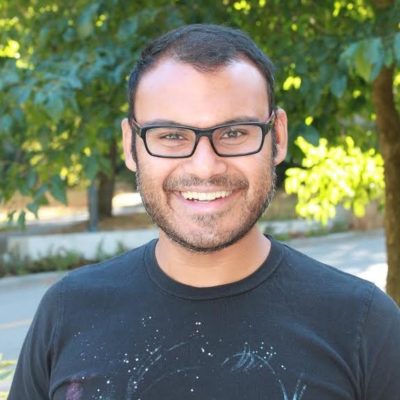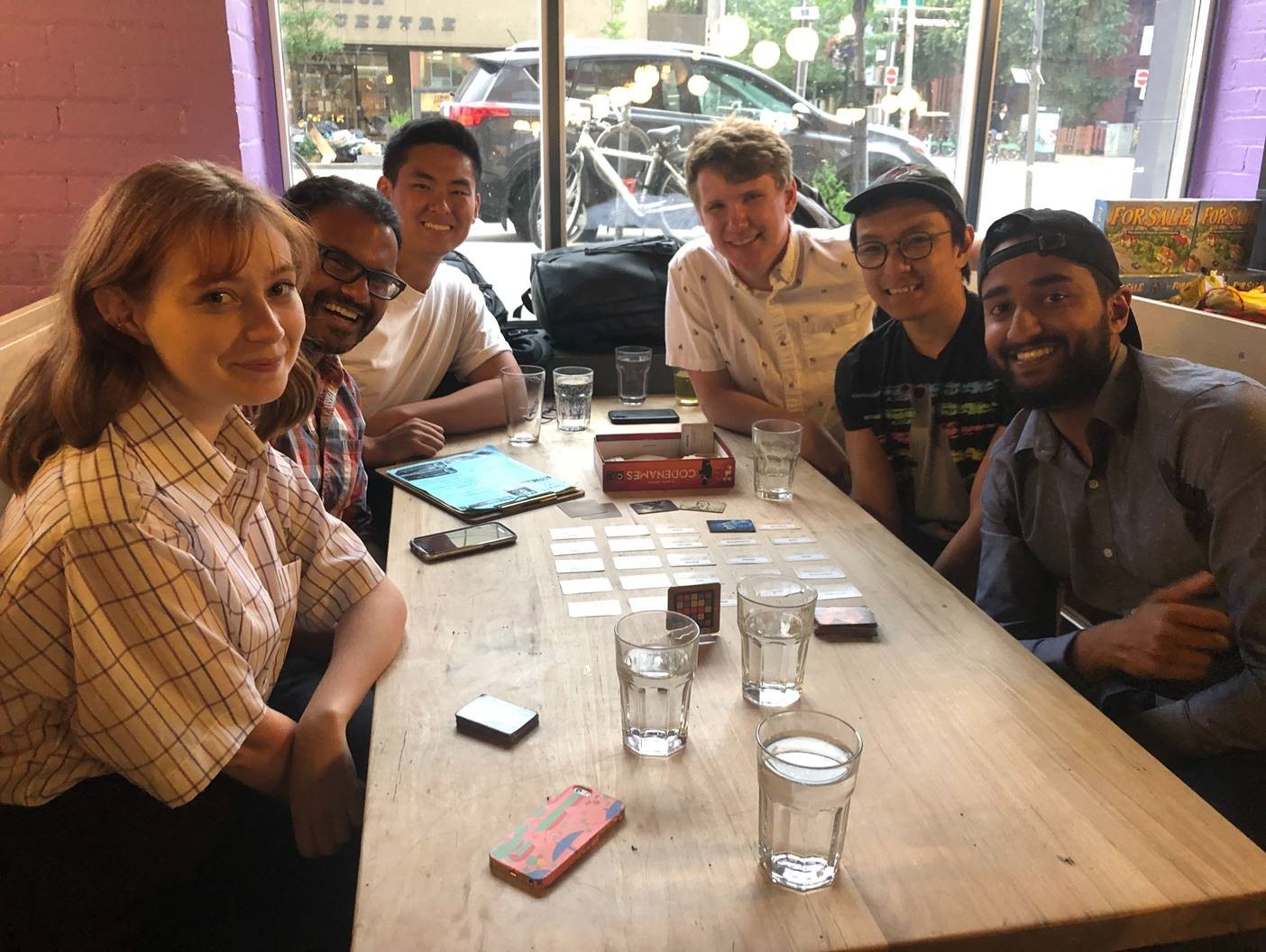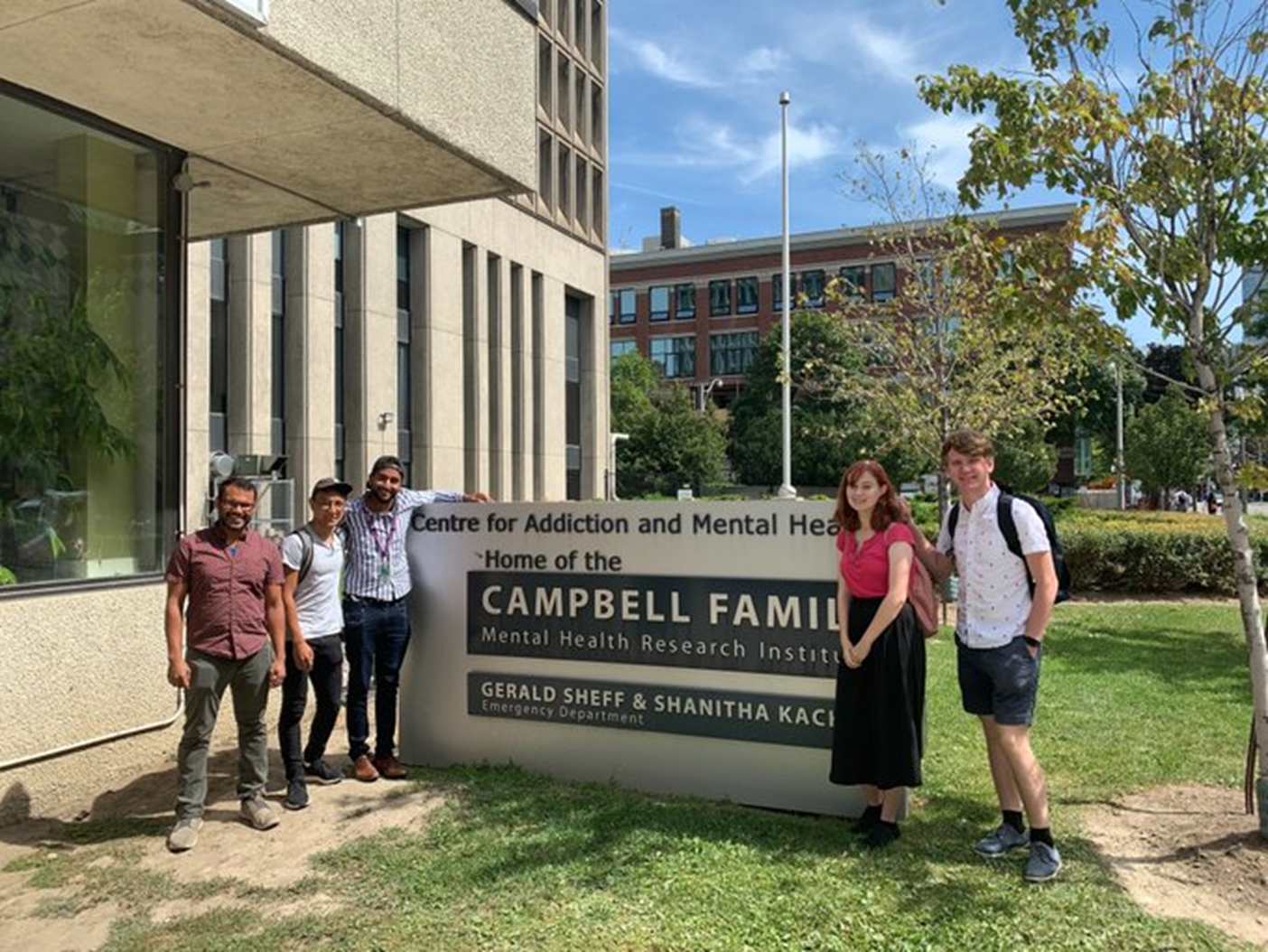Newsroom
#LabLifeLessons: Life after the lab with Dr. Shreejoy Tripathy, Independent Scientist and Assistant Professor
Written by Andreas Geissner from the Withers lab, Michael Smith Laboratories

Dr. Shreejoy Tripathy, former Michael Smith Laboratories member. Photo provided by Dr. Shreejoy Tripathy.
Is academia your dream career? Many post-docs see a Principal Investigator (PI) position as the next logical step in their career progression, but the move from post-doc to PI seem intangible to some. It can be a struggle to find the best way to approach the application process, and then the interview may also be a mystery to some. So, we decided to ask Dr. Shreejoy Tripathy, a former member of the Pavlidis lab who recently started his own lab at the University of Toronto, to share some of his experiences about how he arrived at his current job and some job-hunting tips for post-docs who are looking to become PIs.
Q. Can you please give a short description of your position?
Dr. Tripathy: I am an Independent Scientist at the Centre for Addiction and Mental Health (CAMH) and Assistant Professor in the Department of Psychiatry at the University of Toronto.
Q. At which stage of your career did you decide to pursue this path of becoming a PI? Was this decision planned or did the opportunity arise spontaneously?
Dr. Tripathy: Becoming a PI has been a goal of mine since my early days of graduate school or even before. At every major career stage, I consciously re-evaluated this goal and whether I truly wanted to continue on this path.
I timed my decision of when to apply based on the advice I got from Paul Pavlidis, my post-doc advisor. I applied in two subsequent application cycles over two years. While I didn’t get any interviews in my first year, it was really valuable to put together a full application package and research plan that I could build upon and refine during my second application cycle.
Q. Did you do any special training/volunteering during your graduate/post-graduate research time to prepare for that career?
Dr. Tripathy: I did many things during my PhD and post-doc that contributed to me becoming a PI. This includes the usual things, like writing papers and presenting at conferences. But, it also includes more unusual things such as starting collaborations as a trainee, building websites and databases, and trying to maintain an active presence on Twitter (@neuronJoy). I also made a decision to switch fields from computational neuroscience to bioinformatics while in my post-doc, and I am very grateful for that decision.
Q. What advice would you give to trainees who want to apply for a position in your field?
Dr. Tripathy: It’s hard to give general advice as each candidate and each situation is unique. But in general, I think it’d be good for each candidate to think critically about their personal strengths and weaknesses.
In addition, I would recommend trainees to look at faculty position postings that are in their field and in the cities they would want to live in. What kinds of candidates are those postings looking for? Are there concrete actions that you can take to make yourself more competitive for these postings (aside from the obvious, like publishing more)? Think of these questions as research.
Q. How did you find your faculty position? How did you prepare for the interview?
Dr. Tripathy: I found about my position initially through word of mouth as I had become aware of it through a one-on-one conversation with Sean Hill, my (now) centre director.
I prepared for the interview by putting together a job talk and practicing it multiple times with my post-doc lab (Paul Pavlidis’s lab). Their advice was absolutely critical to doing well on my job talk.
I also did a bit of research into each of the people I would be meeting during my on-site visit. I even reached out beforehand to colleagues in other institutes in Toronto to let them know about my talk and visit. These colleagues helped advocate for my hiring following my interview and are now some of my closest collaborators.

Members in the Dr. Tripathy laboratory. Photo provided by Dr. Shreejoy Tripathy
Q. How much of the work you are doing now correlates with what you expected when you signed up? Are there tasks you did not expect at all?
Dr. Tripathy: It correlates fairly well with my expectations, but it’s really hard to internalize just how much work it is to start a lab or how stress-inducing it can be (for me, anyway). I don’t have children, but starting a lab reminds me of what new parents sometimes say about having a newborn, where each day presents new challenges and unexpected joys.
While I expected to be writing grants, I’m surprised how many grants I’ve written over this past year (6 in total). I’m also surprised how frustrating navigating hospital and university administrative bureaucracy has been.
Q. Is there anything like a typical day in your job? What does it look like?
Dr. Tripathy: My days, recently, consist largely of
- Meeting with my trainees
- Meeting with my collaborators (in person and via Skype/Zoom/phone)
- Grant writing
- Navigating hospital and university administration and bureaucracy
- Data analysis
Next year, I’d like to spend more time writing papers and training my trainees to be more independent.
Q. How much do you have to travel for your job? How does this suit your lifestyle?
Dr. Tripathy: I travel about a few times a year, less than what I was expecting originally. While I enjoy traveling, I’ve recently been trying to consider my carbon footprint before committing to air travel. I also try to prioritize collaborations that are local (within driving or train distance) of Toronto.
I’ve been surprised at how effective online tools (Skype, Zoom, etc.) have been for coordinating with collaborators.

Members in the Dr. Tripathy laboratory. Photo provided by Dr. Shreejoy Tripathy
How did your PhD experience help you transition into your current career? Join the conversation on Twitter with @ubcmsl with #lablifelessons.
_______
This is part of the #LabLifeLessons blog series, a series that highlights the adventures of the PhD experience and beyond. Written by Postdoctoral Fellows at the Michael Smith Laboratories, this series includes a number of posts ranging from personal experiences, interviews, and stories, reflecting on the journey and extracting the learned lessons in the process. #LabLifeLessons focuses on these challenges and aims to bring an authentic voice to the story. If you enjoyed this story, check out the other stories in this series below.
_______